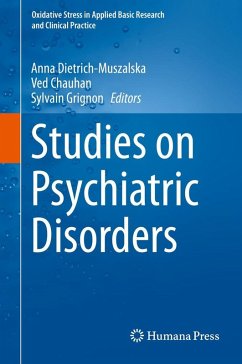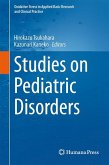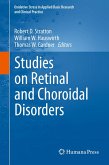This authoritative volume reviews clinical, pathophysiological and therapeutic aspects of oxidative and nitrosative stress in different psychiatric disorders such as schizophrenia, bipolar disorder, autism, and attention deficit hyperactivity disorder (ADHD). Twenty-nine comprehensive chapters are divided into three distinct sections: clinical aspects, pathophysiological aspects, and therapeutic aspects. Together, these chapters present the environmental, genetic and neurodevelopmental factors in the generation of oxidative stress in psychiatric disorders, with particular emphasis on the biochemical changes associated with oxidative stress in dopaminergic and glutamate neurotransmission as well as mitochondrial dysfunction in the brain and peripheral cells. Through an investigation of glutamic acid decarboxylase (GAD) abnormalities in schizophrenia, the book provides a coherent framework to account for the impact of oxidative stress on pathological phenomena ranging from cellular to cognitive and clinical aspects. It describes biomarkers of oxidative damage, the role of oxidative stress in numerous abnormalities of biochemical pathways in the pathophysiology of schizophrenia, the development of new investigative techniques, specially neuroimaging, and studies of apoptotic pathways that seem to prove neurodegenerative and neurodevelopmental theories.
Written by leading researchers in their fields, Studies on Psychiatric Disorders explores therapeutic approaches with aspects of various antioxidants, cryostimulation, and hyperbaric oxygen treatment in oxidative stress in neuropsychiatric diseases. The volume also discusses the role of antipsychotics in the treatment of schizophrenia on nitric oxide generation and biomarkers of oxidative stress together with the clinical symptomatology. Overall, it proposes that novel therapeutic strategies such as supplementation with antioxidants-in particular polyphenols, ¿-3 fatty acids orcombination of both-could be effective for long-term treatment of some neuropsychiatric disorders.
Dieser Download kann aus rechtlichen Gründen nur mit Rechnungsadresse in A, B, BG, CY, CZ, D, DK, EW, E, FIN, F, GR, HR, H, IRL, I, LT, L, LR, M, NL, PL, P, R, S, SLO, SK ausgeliefert werden.









